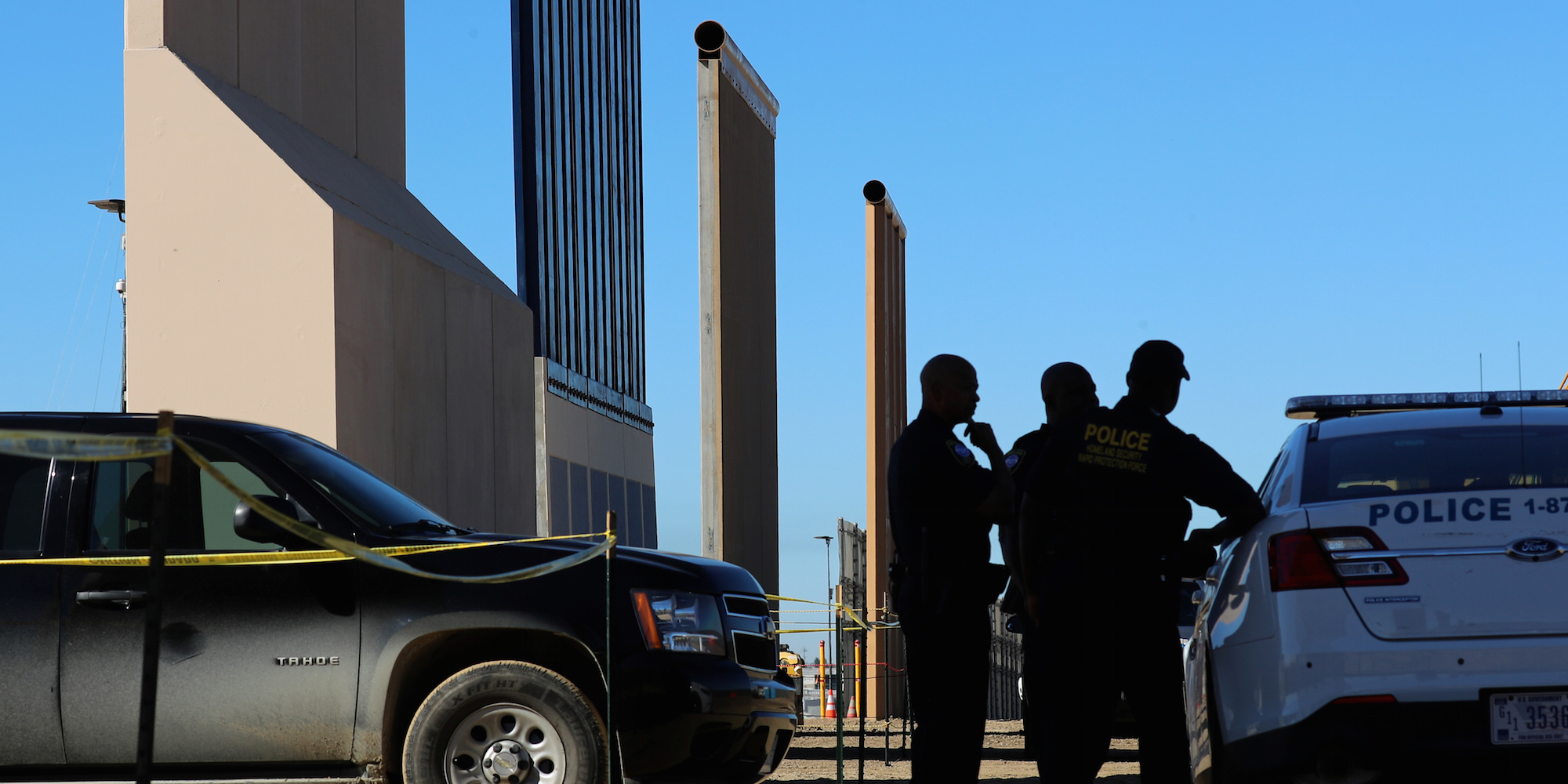- In an internal budget document, the White House directed the Department of Homeland Security to reduce or delay funding for certain border security measures.
- The document also directs DHS to seek increased funding for a wall along the US-Mexico border.
- The news comes as Congress attempts to reach a legislative solution for young unauthorized immigrants losing their protections from the Deferred Action for Childhood Arrivals program.
- President Donald Trump has said there will be no deal on DACA without a border wall.
The Trump administration, in its quest to construct a wall along the US-Mexico border, intends to cut or delay funding for other border security measures that have a proven track record in preventing illegal immigration and detecting drugs, according to budget documents obtained by The New York Times.
An internal budget guidance document for the upcoming fiscal year reportedly reveals that the White House Office of Management and Budget asked Department of Homeland Security officials to reduce or delay funding requests for additional technology and equipment meant to secure the border, the newspaper reported Monday.
In place of those funds, according to the document, the DHS was directed to significantly increase its funding requests for a physical wall, including asking for $1.6 billion in fiscal year 2019 for 74 miles of wall.
The proposed funding cuts outlined in the document include money for a remote video surveillance system in Texas’ Rio Grande Valley, which Border Patrol agents use to spot border crossing and drug smuggling attempts in a particularly susceptible area along the US-Mexico border.
The document called the surveillance system important, but its funding requests were reduced "to offset the costs of presidential priorities not funded in the DHS request," according to The Times.
The document also lays out cuts to the Customs and Border Protection agency, including a denial of a $7.9 million request for technology upgrades to surveillance aircraft used to track drugs being shipped in from countries such as Colombia and Peru.
Those surveillance aircrafts have proven effective in the past, assisting US and international authorities in catching a cumulative 34,108 lbs of marijuana and 193,197 lbs of cocaine during 145 drug seizures, The Times reported.
'A third-century solution to a 21st-century problem'
Other suggestions in the document reportedly included delaying a $15 million funding request for 15 new Coastal Interceptor boats used to catch drug smugglers, and cutting 200 of CBP's 500 canine units used to catch drugs and terrorists.
But the proposal that most alarmed border security experts was the denial of funding for new customs officers, who man the US's ports of entry and in the last fiscal year denied 200,000 travelers from entering, prevented the smuggling of 600,000 pounds of drugs, and intercepted roughly $70 million in illicit currency largely destined for Mexican drug cartels.
Experts told The Times that border security should be thought of as a holistic system made up of patrol routes, lighting, cameras, sensors, and staff - not just walls and fences.
"People that are dealing with this issue know that a third-century solution to a 21st-century problem is not going to fix this long-term," Republican Rep. Will Hurd, who represents a district with more than 800 miles bordering Mexico, told The Times.
News of the internal budget document comes amid the Trump administration's demands that Congress include $18 billion in border wall funding in exchange for a legislative solution for the young unauthorized immigrants temporarily protected by the Deferred Action for Childhood Arrivals program, which ends on March 5.
Trump has repeatedly declared in recent days that any legislation on DACA must include the border wall funding, along with ending so-called "chain migration" and the diversity visa lottery, both of which Trump has seized upon in recent months as harbingers of terrorists.
But Trump's insistence on the border wall in exchange for a deal on DACA is widely seen as a nonstarter. Democrats have been supportive of certain border security measures, but have stopped short of supporting a physical wall.

